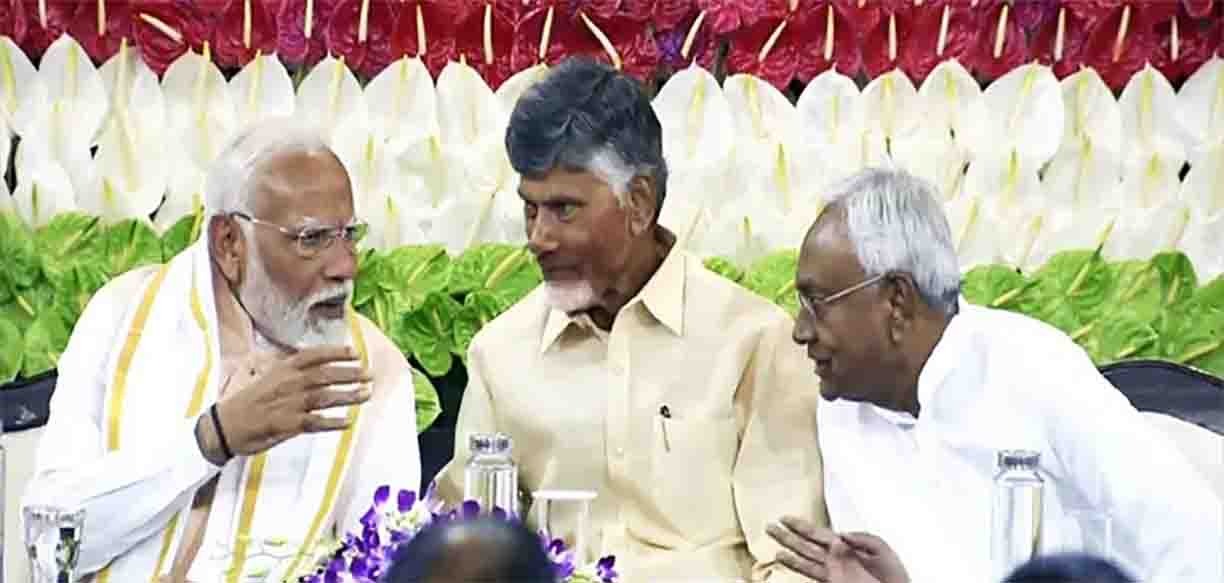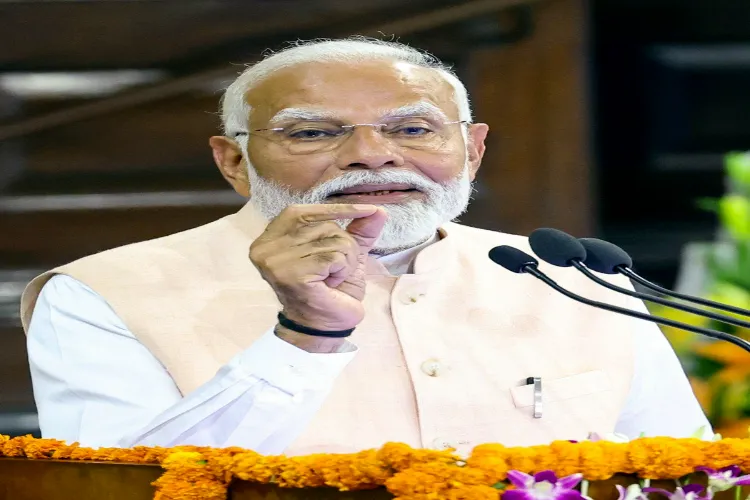
Atir Khan/ New Delhi
In spite of widespread skepticism among political analysts about caretaker Prime Minister Narendra Modi's ability to lead a coalition government at the Centre, his recent speech in the Parliament's Central Hall hinted at a notable shift in his approach.
The Prime Minister's address unmistakably indicated that he has already begun adjusting his strategy towards navigating the complexities of coalition dharma.
His remarks on NDA (new, developed and aspirational India) suggested an acknowledgment that he will take the partners along. And that he might need to sometimes venture off the highway of quick decision making and navigate through obstacles, including speed bumps of the coalition service roads.
In his speech, he sought to allay concerns regarding the longevity of the upcoming NDA coalition government, emphasizing that the NDA is not a new, opportunistic alliance like the INDIA bloc. He highlighted that the roots of the NDA were planted thirty years ago, now growing into a robust, organic tree.
Drawing inspiration from Atal Bihari Vajpayee, his gestures hinted at underestimating his ability to handle the challenges posed by both the opposition and his coalition partners would not be a correct assessment of his caliber. He also visited L.K. Advani and Murli Manohar Joshi to seek their blessings. Advani as we know was the Deputy Prime Minister and Murli Manohar Joshi was the HRD Minister during Vajpayee’s coalition NDA Government.
In his speech Modi reminded the nation of his familiarity with coalition politics, having closely observed the dynamics during the Vajpayee-led NDA government while working within the party organization.
Moreover, he made it clear that today's BJP is not the same as during Vajpayee's tenure, boasting a significantly larger presence. The fact that he becomes the first elected Prime Minister for the third consecutive time and given his cordial relations among the world leaders, he inspires much more confidence as a leader and comes from a position of strength.
In his speech PM Modi emphasized the party's collective strength, comparable to the cumulative strength of the Congress over the last three Lok Sabha elections.
His interactions with coalition leaders on stage exhibited a positive rapport, with partners expressing confidence in his leadership. And that the BJP compromises of power sharing will not be as large as were in the Vajpayee era.
The fact that both the major coalition partners Chandra Babu Naidu and Nitish Kumar are Chief Minister material, it will give him more elbow space to run the coalition. Moreover, both of them are experienced NDA allies and understand the coalition compulsions.
However, it's understood that PM Modi understands the need to compromise on some party projects and compulsion of sharing important cabinet portfolios with coalition partners beyond those in the Cabinet Committee on Security and education.
 Prime Minister Modi Addressing the NDA MPs meeting
Prime Minister Modi Addressing the NDA MPs meeting
While many doubt Modi's ability to adhere to coalition principles due to his authoritative image, he has begun addressing concerns and preempting potential misunderstandings regarding cabinet formation in a coalition government.
By invoking past NDA leaders such as Prakash Singh Badal, Bal Thakrey, George Fernandes, and Sharad Yadav, Modi seems mentally prepared for the challenges ahead. He has set ambitious goals, charting a roadmap not just for five but ten years.
Comparisons with Vajpayee notwithstanding, doubts linger about Modi's adeptness in handling demanding situations persuasively. Nonetheless, it would be imprudent to underestimate his adaptability, particularly given his track record of effective leadership during crises like the Covid pandemic.
However, Modi may need to emulate Vajpayee's flexibility and sense of humor when dealing with the opposition, acknowledging the necessity of remodeling himself for the coalition era.
